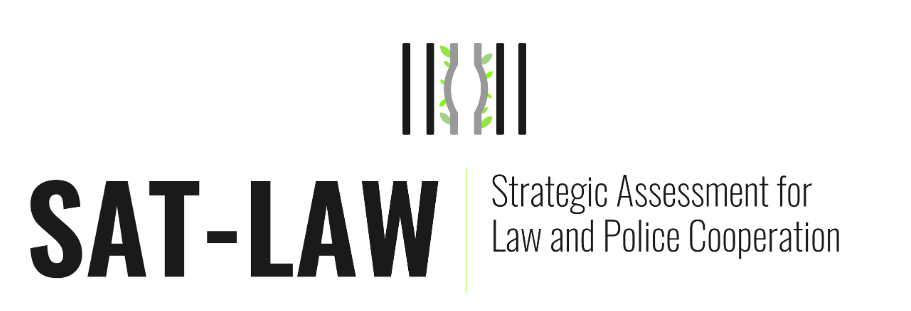The SAT-LAW project aims to contribute to the effective monitoring and harmonised implementation of Directive 2014/41/EU on the European Investigation Order (EIO) by supporting the preparation of bi-annual, case-based reports (pursuant to Article 37) for the European Commission. The project will combine qualitative and quantitative data to assess the coherence of the EIO with other EU judicial cooperation instruments and the broader acquis protecting the rights of suspects and accused persons.
Objectives include:
- Contributing to the EU-wide assessment of the EIO Directive’s application through structured bi-annual reporting;
- Enhancing coherence and mutual understanding between the EIO and other EU legal frameworks on judicial cooperation and fundamental rights;
- Promoting effective, rights-based implementation models and interoperability between judicial and law enforcement actors.
Core activities:
- Bi-annual questionnaires to collect quantitative and qualitative data on the state of EIO implementation in Member States;
- Two dedicated legal researches on: (1) the coherence of the EIO with other EU judicial cooperation instruments and treaties, and (2) its consistency with EU Directives safeguarding defence rights;
- Ten Judicial Living Labs (JLLs) exploring key operational and legal challenges, such as:
- Proportionality in the use of Special Investigative Techniques (SITs) and surveillance;
- EIO, e-evidence and digital technologies;
- Implementation models in adversarial and inquisitorial systems;
- EIO and fundamental rights compliance;
- EIO and prison-related measures.
- Proportionality in the use of Special Investigative Techniques (SITs) and surveillance;
- Mapping available SITs used under the EIO;
- Development of a Toolkit of promising practices, national/EU/ECtHR case-law, and blended training materials;
- Drafting of two Manuals for practitioners;
- Dissemination of key findings and awareness-raising among policymakers.
Target groups include:
- 300 judicial professionals (judges, investigative judges, prosecutors, lawyers);
- 1,000 law enforcement officers;
- 1,000 prison police and prison staff, including surveillance judges;
- 500 private legal and technical experts.
Expected results:
- Increased capacity of national authorities to address challenges related to judicial cooperation in criminal matters;
- Improved alignment with EU acquis and jurisprudence of the CJEU and ECtHR;
- Enhanced specialisation of prosecutors and judges in key areas of cross-border cooperation;
- Strengthened cooperation between law enforcement, prison authorities and the judiciary;
- Greater awareness among policymakers and technocrats of the legal and operational dimensions of EU judicial cooperation.
By creating a structured and evidence-based approach to monitoring EIO implementation, SAT-LAW fosters a more coherent, rights-compliant, and efficient framework for judicial cooperation in criminal matters across the EU.

